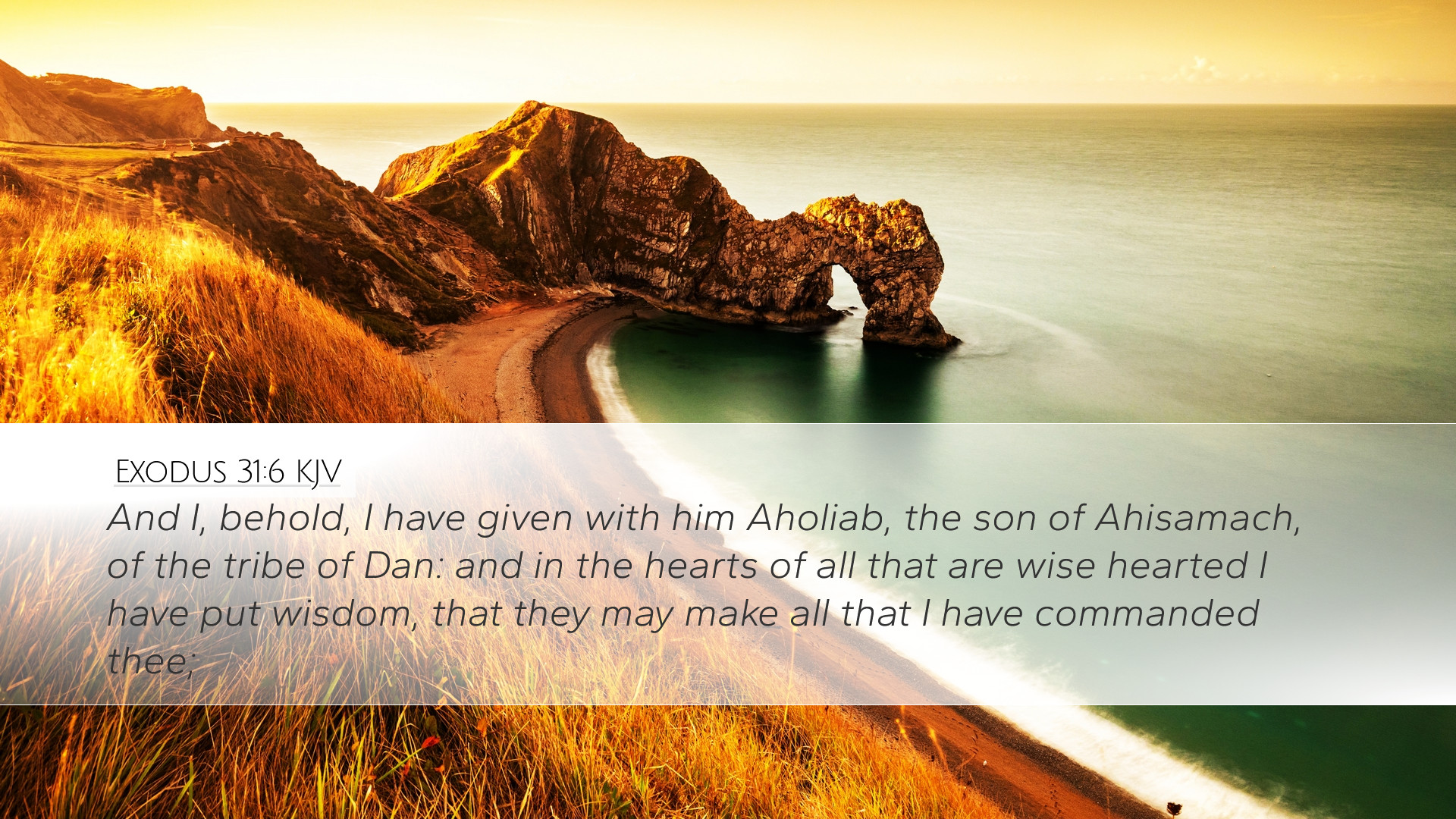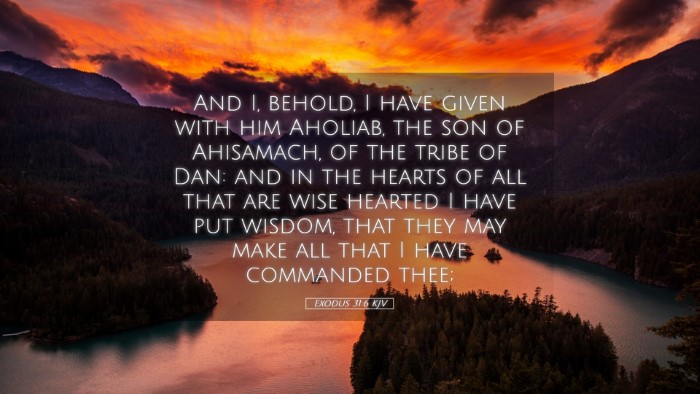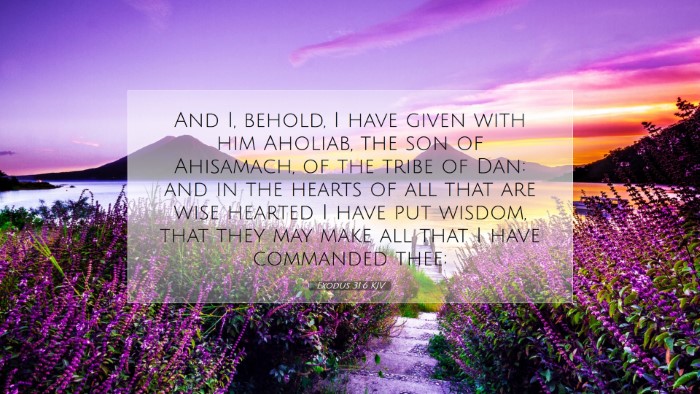Exodus 31:6 Commentary
Verse: "And I, behold, I have given with him Aholiab, the son of Ahisamach, of the tribe of Dan: and in the hearts of all that are wise-hearted I have put wisdom, that they may make all that I have commanded thee." (Exodus 31:6)
Introduction
This verse highlights God's provision of skilled artisans equipped with divine wisdom for the construction of the Tabernacle. It serves as a reminder of God's sovereignty in appointing individuals for specific tasks within His divine plan.
Contextual Background
Exodus 31 marks a pivotal moment in the narrative of the Israelites during their exodus from Egypt. It pertains to God's instructions concerning the Tabernacle and the establishment of proper worship. Here, God emphasizes the necessity of craftsmanship infused with divine wisdom for fulfilling His commands.
Insights from Commentaries
Matthew Henry's Commentary
Matthew Henry explains that God's selection of Aholiab and others showcases His attention to detail and the importance of skilled labor in His work. He notes:
- Divine Wisdom: The wisdom imparted to the craftsmen was not merely natural skill but divinely bestowed insight, enabling them to execute God's commands accurately.
- Community Involvement: God's inclusion of "all that are wise-hearted" illustrates that His work is collective, engaging the community in worship and service, thereby enhancing communal responsibility.
Albert Barnes' Notes
Albert Barnes highlights the following significant aspects:
- Empowered Craftsmen: God directly empowered Bezalel and Aholiab, indicating that no task is too trivial or beyond divine involvement, as all craftsmanship is ultimately service to God.
- Tribe of Dan's Role: Aholiab's mention as a craftsman from the tribe of Dan underscores that God can equip individuals from any background to fulfill His purposes, emphasizing inclusivity among His chosen people.
Adam Clarke's Commentary
Adam Clarke provides a rich analysis of the implication of God appointing craftspeople with specific skills:
- God’s Direction in Craftsmanship: Clarke emphasizes that the notion of craftsmanship in the sacred space was not arbitrary; rather, it was carefully orchestrated by God, reflecting His perfect order and beauty.
- The Gift of Wisdom: The "wisdom" given to these artisans signifies both practical skills and spiritual understanding, equipping them for ministry through service. It illustrates the convergence of physical labor and spiritual engagement in God's work.
Theological Implications
Exodus 31:6 serves as a profound reminder for church leaders and theological students about the importance of acknowledging God's provision in ministry:
- Recognition of God’s Gifts: Understanding that talents and skills are gifts from God encourages leaders to cultivate and deploy these gifts effectively within the church.
- Encouragement of Community Participation: The command to involve everyone with wisdom in their hearts reinforces the need for communal engagement and recognizes that each member contributes to God's work.
Practical Applications for Ministry
As pastors, students, and theologians reflect on Exodus 31:6, several practical aspects emerge:
- Empowering Others: Foster environments where individuals can discover and develop their God-given abilities, reminiscent of how God anointed Bezalel and Aholiab.
- Valuing Diversity: Embrace the diverse backgrounds and skills within church communities, ensuring that ministry roles reflect this diversity.
- Collaboration in Ministry: View ministry as a collaborative effort where the community contributes to fulfilling God’s vision rather than relying solely on church leaders.
Conclusion
Exodus 31:6 reminds believers of God's active role in equipping His people for works of service. The divine wisdom granted to artisans illustrates that God desires excellence and artistry in worship. As we reflect on this verse, let us remain vigilant in recognizing and nurturing the gifts God has placed within our communities, striving for a collaborative effort in the realization of His heavenly plans.


